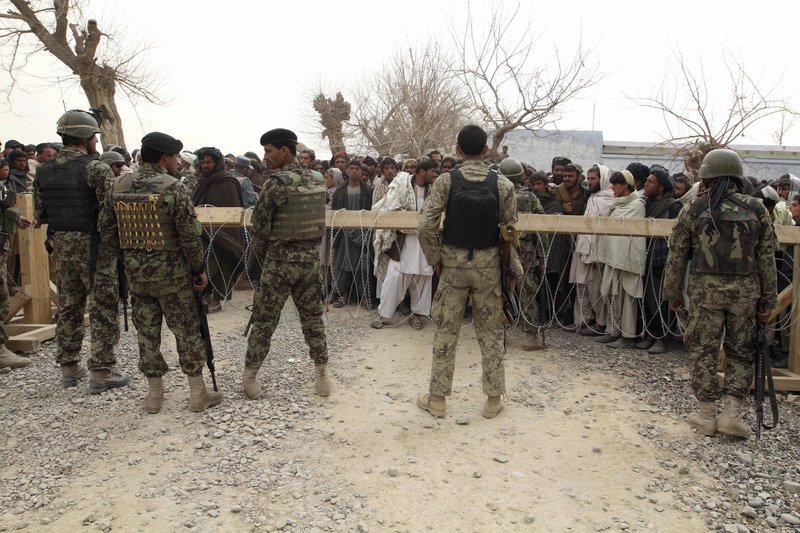WASHINGTON — The Army staff sergeant accused of massacring Afghan civilians while they slept was providing security at a remote base for special operations forces that were teaching the Afghans how to defend themselves.
While the soldier had no special operations training, his alleged actions deal a blow to the elite outreach program — called Village Stability Operations — which the United States says is key to handing off security to Afghans and keeping the Taliban at bay.
Established in early 2010, the VSO program sends small units of Green Berets or Navy SEALs to remote villages to help provide security, as well as to learn the local culture and tribal structure.
Once security is established, special operators then train local men to act as a sort of government-sanctioned, armed neighborhood watch, called the Afghan Local Police force.
The program is designed to reach villages far from urban areas, and outside the security zone that NATO and Afghan troops provide around heavily populated areas.
These areas are the Taliban’s traditional ground for recruiting fighters and resupplying by taxing local residents, or simply confiscating their livestock.
The program has been deemed so successful at deterring the Taliban that the list of waiting villages keeps growing, far outpacing the number of special operations forces available to help locals keep the peace. So far, there are 58 VSO sites complete, with a total of 100 planned, and some 12,400 trained Afghan Local Police and nearly 18,000 more waiting to be trained, according to figures provided by NATO.
That growing demand is the reason a conventional Army staff sergeant ended up assigned to the elite unit. It was part of a pilot program U.S. commanders came up with more than a year ago — to stretch their special operations forces to more sites by mixing in roughly two battalions of conventional troops with the special operations teams.
At mixed bases like Belambai, near the villages where the killings took place, the special operators use their knowledge of local language and customs to engage the villagers, while the conventional troops provide base security, stock ammunition, food and water, and keep generators and vehicles running, among other tasks.
That’s likely how the accused staff sergeant was able to easily walk off his base, as his team was in charge of providing security.
The idea of using conventional troops was intended to free up special operators to engage in the time-consuming training of the local fighters, teaching them a variety of basic skills from checking the road for improvised explosive devices to how to repel nighttime Taliban raids.
The villagers trained by the special operations teams are nominated by village elders and approved by local government police and intelligence representatives, after a strict background check including biometrics to make sure the would-be protectors aren’t already in the NATO database as Taliban fighters.
After initially working side-by-side with the Afghans, the special operators eventually leave the troops to conduct their own operations, and move on to another village — all the while, keeping in contact to make sure the Taliban have not re-infiltrated the village, or the force — and to make sure the new force does not go rogue, demanding bribes from locals, for instance — something that has happened in previous versions of the VSO program over the past decade of war.
The accused staff sergeant would have been a good candidate for such an operation, with his battle experience from three previous combat tours in Iraq.
Send questions/comments to the editors.



Success. Please wait for the page to reload. If the page does not reload within 5 seconds, please refresh the page.
Enter your email and password to access comments.
Hi, to comment on stories you must . This profile is in addition to your subscription and website login.
Already have a commenting profile? .
Invalid username/password.
Please check your email to confirm and complete your registration.
Only subscribers are eligible to post comments. Please subscribe or login first for digital access. Here’s why.
Use the form below to reset your password. When you've submitted your account email, we will send an email with a reset code.